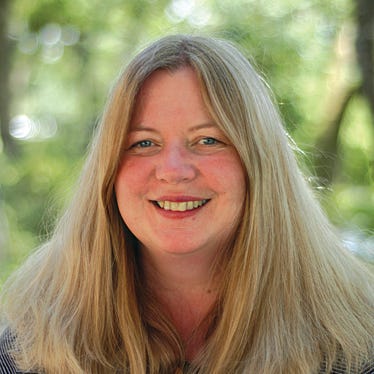
In 2014, 43,773 people died by suicide in the U.S.
"There may be more," says Chris Wardlow, a prevention specialist at Catalpa Health in Appleton. "Some die in car crashes, and it's not declared a suicide unless a note is found."
As shocking as it may be, most people who are middle-aged or older probably know someone who has attempted suicide or possibly committed suicide, according to Wardlow and Kathleen Fuchs, a retired Appleton psychologist.

SUICIDE SYMPTOMS: Untreated depression and anxiety are significant risk factors for suicide. (Photo by Thinkstock)
Wardlow and Fuchs recently spoke at a meeting held in Kimberly by University of Wisconsin Extension and the Wisconsin Department of Agriculture, Trade and Consumer Protection for ag professionals to help farmers deal with continuing low commodity prices.
Get involved
Most people believe it’s taboo to talk about suicide, and they believe only experts can prevent suicide. But that's absolutely false, Fuchs said.
"Suicide prevention is everybody's business," she explained. "Ask a question — save a life."
Fuchs and Wardlow listed some little-known facts about suicide:
• Ninety percent of those who die by suicide have a treatable psychiatric disorder at the time of their death, such as depression or anxiety.
• Most people with mental illness do not die by suicide.
• Nine out of 10 people who attempt suicide and survive will not go on to die by suicide at a later date.
• The occupations with the highest suicide rates are farming, fishing and forestry, with between 84.5 and 91 deaths per 100,000 adults.
• In 2012, more military personnel died by suicide than in combat.
"Many farmers are veterans," Wardlow said. "White, middle-aged males are most likely to commit suicide. Our society puts pressure on men to be successful."
Untreated depression and anxiety are significant risk factors for suicide, according to Wardlow. "Anxiety and depression are hard to separate," he noted. "Both are treatable."
Many people falsely believe they shouldn't ask someone who they think may be suicidal if they are. "Would we say you shouldn't help someone who has heart disease? No," Fuchs said. "People who are suicidal need help."
The experts explained that suicide is rarely a snap decision. "It usually builds over time and is triggered by a variety of factors, such as not getting a loan," Fuchs said.
Feelings of hopelessness — the belief that there is no solution to one’s problem — are found to be more predictive of suicide risk, Wardlow said.
Act quickly
Fuchs and Wardlow also discussed what to do if you determine a family member is contemplating suicide. Fuchs advised if there are guns in the house, get them out of the house until the crisis subsides.
"Give them to extended family or friends," she said. "That little bit of time we have bought by preventing them from accessing a gun may be all that is needed to prevent a suicide."
People who are contemplating suicide will drop clues that they are suicidal. They will:
• say things like "I wish I were dead," "I'm going to end it all" or "I'm not going to be around"
• give away personal property
• find sudden interest or disinterest in religion
• put their affairs in order
• acquire a gun
• stockpile pills
• become depressed following the diagnosis of a serious or terminal illness
• express fear of becoming a burden to others
• withdraw following the death of a spouse, parent or child — especially if it is a suicide
Your willingness to listen can help, Fuchs said. "It's often a relief to people to admit they are suicidal," she said. "Some people who are really depressed often believe they can't be helped."
What can you do?
A good strategy, if you are concerned about someone’s mental health, is known as QPR. Much like CPR, Wardlow said, QPR is easily learned and can save a life. What is QPR?
Question a person about suicide.
Persuade the person to get help.
Refer the person to the appropriate resource.
"QPR is not intended to be a form of counseling or treatment," Wardlow said. "QPR is intended to offer hope through positive action. QPR is intended to teach those who are in a position to recognize the warning signs, clues and suicidal communications of people in trouble to act quickly to prevent a possible tragedy."
Wardlow offered these tips on asking the suicide question:
• If in doubt, don't wait.
• Talk to the person alone or in private.
• Allow the person to talk freely.
• Give yourself plenty of time.
Wardlow said how you ask the question is less important than making sure you ask it. "But don't say, 'You're not thinking about doing something stupid like killing yourself, are you?' Instead say something like, 'You look pretty miserable. I wonder if you are thinking about committing suicide?' If you can't ask the question, find someone who can ask the question," he said.
He advised talking to the person and listening to their problems. "Give them your full attention. Offer hope by saying, 'We'll get through this. I want you to live. I'm on your side. Will you let me help you get help?'"
Your willingness to listen can help. "Get others involved," Wardlow added. "Family, friends, clergy … ask who they will let help. Caring may save a life. Hope helps prevent suicide."
Wardlow said if someone is in immediate danger, dial 911. Dispatchers are trained to help. Or, call the National Suicide Prevention Lifeline at 800-273-TALK (8255).
About the Author(s)
You May Also Like






